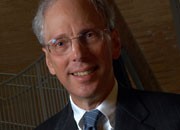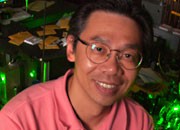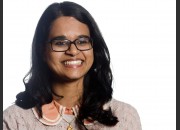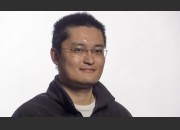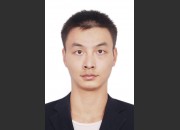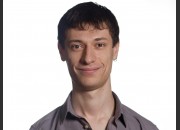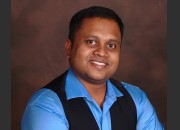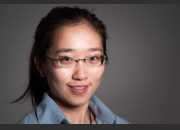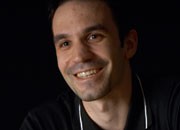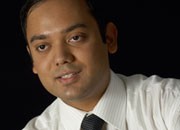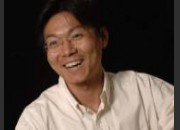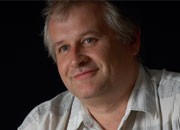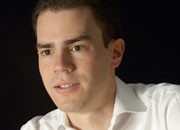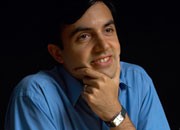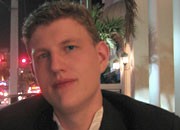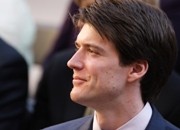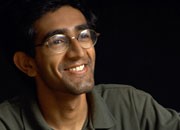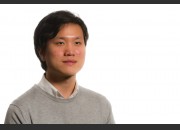People - Optical and Quantum Communications Group
Jeffrey H. Shapiro
Julius A. Stratton Professor of Electrical Engineering
jhs@mit.edu | RLE Biography
Professor Jeffrey H. Shapiro is the former Director of the Research Laboratory of Electronics (RLE) at the Massachusetts Institute of Technology (MIT). He received the S.B., S.M., E.E., and Ph.D. degrees in Electrical Engineering from MIT in 1967, 1968, 1969, and 1970, respectively. As a graduate student he was a National Science Foundation Fellow, a Teaching Assistant, and a Fannie and John Hertz Foundation Fellow. His doctoral research was a theoretical study of adaptive techniques for improved optical communication through atmospheric turbulence.
From 1970 to 1973, Dr. Shapiro was an Assistant Professor of Electrical Sciences and Applied Physics at Case Western Reserve University. From 1973 to 1985, he was an Associate Professor of Electrical Engineering at MIT, and in 1985, he was promoted to Professor of Electrical Engineering.
From 1989 until 1999 Dr. Shapiro served as Associate Department Head of MIT's Department of Electrical Engineering and Computer Science. In 1999 he became the Julius A. Stratton Professor of Electrical Engineering. In 2001, Dr. Shapiro was appointed Director of RLE. Dr. Shapiro's research interests have centered on the application of communication theory to optical systems. He is best known for his work on the generation, detection, and application of squeezed-state light beams, but he has also published extensively in the areas of atmospheric optical communication, coherent laser radar, and quantum information science.
Dr. Shapiro is a fellow of the Institute of Electrical and Electronics Engineers, of the Optical Society of America, of the American Physical Society, and of the Institute of Physics, and he is a member of SPIE (The International Society for Optical Engineering). He has been an Associate Editor of the IEEE Transactions on Information Theory and the Journal of the Optical Society of America, and was the Principal Organizer of the Sixth International Conference on Quantum Communication, Measurement and Computing (QCMC'02).
Franco N.C. Wong, PhD
Senior Research Scientist
@ncw@mit.edu | RLE Biography
Dr. Franco N.C. Wong is a principal investigator in the Research Laboratory of Electronics (RLE) at the Massachusetts Institute of Technology (MIT). He received the B.A. in physics and B.S. in mechanical engineering from the University of Rochester in 1977, and the M.S. and Ph.D. in applied physics from Stanford University in 1979 and 1983 respectively. He joined RLE in 1986 as Research Scientist, and was promoted to Principal Research Scientist in 1998 and Senior Research Scientist in 2003.
Dr. Wong carries out studies in quantum and nonlinear optics. His research includes the application of optical parametric oscillators to squeezed states of light, high-precision optical frequency division, and wide-band optical communications.
Current Members
Nivedita Chandrasekaran
Grad Student I nivedita@mit.edu
Nivedita Chandrasekaran (S’13) received her S.B. in electrical engineering, S.B. in physics, and M.Eng in electrical engineering from the Massachusetts Institute of Technology (MIT), Cambridge, MA in 2008, 2009, and 2009, respectively. She is currently a doctoral student in the Optical and Quantum Communications Group in RLE. Her current research seeks to bound the ultimate performance of photon-efficient optical communication links through turbulence and provide achievable implementations for links that approach these performance bounds.
Her research interests include quantum and classical optical communication through turbulence and quantum information.
Zheshen Zhang
Postdoctoral Associate | zszhang@mit.edu
Dr. Zheshen Zhang received the B.S. in Electrical Engineering from Shanghai Jiao Tong University in 2006, and the M.S. and Ph.D. in Electrical and Computer Engineering from the Georgia Institute of Technology in 2009 and 2011 respectively. He joined the Optical and Quantum Communications group in the Research Laboratory of Electronics at MIT in 2012 as Postdoctoral Associate.
Dr. Zheshen Zhang’s research interests cover a wide range of quantum information science. He has proposed and theoretically analyzed quantum key distribution protocols that operate at high rates, and experimentally investigated new techniques to implement these protocols. He has also theoretically studied nonlinear optical properties of novel nano materials that serve as building elements for integrated quantum networks, and carried out experiments to demonstrate these nonlinear effects. At MIT, his research encompasses both theoretical and experimental aspects of entanglement-enhanced quantum communications in entanglement-breaking environments, single-photon high-dimensional quantum key distribution, photon information efficient communications, and scalable quantum computing and networks.
Feihu Xu
Postdoctoral Associate | fhxu@mit.edu
Dr. Feihu Xu is a postdoctoral associate at the RLE of MIT. He received a B.S. in Electronic Engineering from the University of Science and Technology of China in 2009, and an M.A.Sc and Ph.D in Electrical and Computer Engineering from the University of Toronto in 2011 and 2014 respectively. He received China National Scholarship, Shahid U.H. Qureshi Memorial Scholarship, Ontario Graduate Scholarship Visa Award, etc. His doctoral research mainly focused on the security of practical quantum cryptography, the demonstration of advanced quantum communication protocols and the development of fast quantum random number generators. Dr. Xu's current research interests include experimental investigations of the photon-efficient optical information processing, ranging from the fundamental studies of the quantum theory to secure communication and compressive imaging.
Quntao Zhuang
Doctoral Student | Quntao Zhuang <quntao@mit.edu>
Quntao Zhuang received his B.S. in physics from Peking University, Beijing in 2013. He is currently a doctoral student in the Optical and Quantum Communications Group in RLE. His current research interest is in quantum secure communication channels, especially quantum illumination schemes.
Justin Dove
Grad Student | Justin Dove <dove@mit.edu>
Justin Dove received his B.S. in Physics and Mathematics from Adelphi University in 2012 and his S.M. in Electrical Engineering and Computer Science from MIT in 2014. His research interests include quantum computation and quantum information theory, and his master's thesis explored fundamental limitations on nonlinear-optical quantum computing. His most recent research is focused on the topic of quantum secure communication.
Bhaskar Roy Bardhan
Postdoctoral Associate | broyba1@mit.edu
Dr. Bhaskar Roy Bardhan received the B. Sc. degree in Physics (honors) from St. Xavier's College, University of Calcutta, India, in 2006, the M.Sc. degree in Physics from Indian Institute of Technology Guwahati, India, in 2008, and the Ph.D. degree in Physics from Louisiana State University, Baton Rouge, USA, in December 2014. During his doctoral studies he received the Charles E. Coates research grant for the academic year 2013-2014 from Louisiana State University, and was recipient of several conference travel awards from the American Physical Society and Institute of Electrical and Electronics Engineers. He joined the Optical and Quantum Communications Group at the Research Laboratory of Electronics of MIT as a Postdoctoral Associate in 2015. Dr. Roy Bardhan’s current research interests include optical and quantum communication, quantum information theory, quantum metrology, and quantum key distribution.
Murphy Yuezhen Niu
Doctoral Student | yzniu@mit.edu
Murphy Yuezhen Niu is pursuing a doctoral degree at the Resaerch Laboratory of Electronics(RLE) supervised by Prof. Jeffrey H. Shapiro. Her current research interests include quantum information and communication theory, quantum optical entanglement source design with non-linear optics, and quantum linear optical computation.
Prior to joining the group, Murphy received her B.S in physics from Peking University in 2012, Beijing, where she conducted a broad span of research in condensed matter theory, high energy particle theory and cosmology. She is the first price awardee of the National Fund for Fostering Talents of Basic Science in China.
Alumni
Baris Erkmen
Alumni
Baris I. Erkmen received his B.S. and M.Eng degrees in Electrical Engineering from MIT in 2002 and 2003 respectively. As a Master's student he participated in the STAB program, a project on high data rate atmospheric optical communications utilizing optical preamplification and diversity reception, jointly lead by LIDS and RLE at MIT. His M.Eng. thesis studied point-to-point atmospheric optical communication links in the near-field power transfer regime. Baris is currently a doctoral candidate in the Optical and Quantum Communications Group in RLE. His thesis research focuses on developing a unifying theory for classical and quantum imaging through the study of the coherence properties of phase-sensitive light fields. His research interests include quantum and classical optical communication, quantum computing and optical imaging.
Saikat Guha
Alumni | sguha@bbn.com
Saikat Guha received his B.Tech. in Electrical Engineering from Indian Institute of Technology (IIT) Kanpur in May 2002, and he received his S.M. in EECS from MIT in February 2004 with a thesis on capacities of free-space quantum optical communication channels. Saikat represented India as a part of the first Indian team of five students at the 29th International Physics Olympiad at Reykjavik, in July 1998 where he received the European Physical Society award for the experimental component. He is currently pursuing a doctoral degree at the Research Laboratory of Electronics (RLE) under the supervision of Prof. Jeffrey H. Shapiro. His current research interests include quantum information and communication theory and quantum error-correction, and he has recently been working on multi-user bosonic communication.
Dmitry Kolker, PhD
Visiting Scientist | dkolker@mit.edu
Dr. Dmitry Kolker received his Masters degree in 1995 from Novosibirsk Technical State University were he majored in Solid State Physics. Upon graduation he was hired as a senior scientist at the Institute of Laser Physics SB RAS (Novosibirsk, Russia). In 2001 Dr. Kolker was awarded a Lavrentyev medal SB RAS (Russia) as a project leader for young scientists. That same year he received his Ph.D degree from the Institute of Laser Physics SB RAS (Russia).
Before joining MIT, Dr. Kolker was a postdoctoral researcher at BNM-SYRTE (Paris , France) from 2002-2004 and in 2005 became a visiting scientist at the Conservatoire National des Art et Meters, Institute National de Metrology (Paris, France).
Dr. Kolker's research interests include nonlinear optics, solid-state lasers, femtosecond lasers and precise frequency measurements. More specifically, he has worked on the frequency metrology of the Sr+ atom (Paris), self-phase-locked frequency divide by 3 optical parametric oscillators, frequency standards for visible and near infrared and infrared regions.
Onur Kuzucu
Alumni
Onur Kuzucu joined the Doctoral program at MIT in 2001, receiving his Master's degree in 2003 for his research involving high repetition rate octave spanning Ti:sapphire ultrafast lasers. He received the Morris J. Levin EECS Masterworks award with his Master's thesis presentation in 2003. Since graduating Onur has been working in the Optics and Quantum Communications group where his research focuses on utilizing ultrafast lasers in parametric downconversion experiments for quantum cryptography and linear optics quantum computing.
Before coming to MIT, Onur completed his undergraduate studies in Middle East Technical University in Turkey, where he received the IEEE Antennas and the Propagation Society Undergraduate Scholarship in 2000. His previous summer internship work includes numerical simulation of antenna radiation patterns and payload optimization for commercial satellite systems. He is currently a student member of IEEE and OSA.
Mohsen Razavi
Alumni
Mohsen Razavi received his B.S. and M.S. degrees (with honors) in Electrical Engineering from Sharif University of Technology, Tehran, Iran, in 1998 and 2000, respectively, and his Ph.D. in Electrical Engineering and Computer Science from the Massachusetts Institute of Technology in 2006. He is currently a postdoctoral fellow in the Optical and Quantum Communications Group at the Research Laboratory of Electronics, MIT. From August 1999 to June 2001, he was a member of the research staff with the Advanced Communication Science Research Laboratory at the Iran Telecommunications Research Center (ITRC), Tehran, Iran, working on optical CDMA systems that incorporate optical amplifiers. From 2001 to 2003, Mohsen was part of the STAB project, an RLE-LIDS joint project, working on high data rate wireless atmospheric optical links that use receiver diversity and optical preamplification. In his doctoral thesis, he studied trapped-atom quantum memories used in quantum communication systems. He also developed a quantitative analysis for quantum communication systems that use ensembles of atoms as their quantum memories. He is currently working on the cross-Kerr nonlinearity induced by single photons in atomic media. His research interests include quantum communication, quantum storage, and atomic-photonic approaches to quantum computing
Ingo Stork genannt Wersborg
Visiting Student | istork@mit.edu
Ingo Stork genannt Wersborg received his Bachelor of Science in Electrical Engineering from the Technical University of Munich, Germany. Working at Siemens Corporate Technology, his early research work was with optical communication systems—especially optical performance monitoring in DWDM systems. He joined the Research Laboratory of Electronics at M.I.T. in October of 2005 in order to do research for his German diploma thesis (Master of Science equivalent). The experimental research topic is to attack a BB84 quantum key distribution using single-photon two-qubit quantum logic.
P Ben Dixon
Alumni | ben.dixon@LL.MIT.EDU
Dr. P. Ben Dixon is a postdoctoral associate at the Research Laboratory of Electronics (RLE) at the Massachusetts Institute of Technology (MIT). He received a B.S. in mechanical engineering from the University of Florida in 2005, and an M.A. and Ph.D. in physics from University of Rochester in 2008 and 2012, respectively . He received a Florida Academic Scholar Award from 2000 to 2005, and a Department of Education GAANN Fellowship from 2006 to 2009. His doctoral research involved the development of quantum weak-value based metrology tools, and an experimental study of the communication capabilities of position-momentum entangled photons.
Dr. Dixon's research interests include experimental investigations of the quantum behavior of optical systems, ranging from fundamental investigations of the foundations of quantum theory to the development of quantum communication protocols and quantum metrology techniques.
Nicholas Hardy
Alumni | nicholas.hardy@ll.mit.edu
Nicholas Hardy received his B.S. in Electrical Engineering from the University of Illinois at Urbana-Campaign in 2009. Upon graduation he joined the Optical and Quantum Communication group at MIT, and received his S.M. in 2011 for his work on reflective ghost imaging. His research interests are quantum and classical optical imaging, applications of patterned illumination imaging, and the mitigation of speckle in laser imaging systems. His Ph.D. research focuses on the development of approximate message passing techniques to improve image reconstruction in remote optical imaging systems.
